Let’s talk about that slightly mysterious, slightly fizzy, wildly trendy drink that seems to pop up on every yoga studio fridge and health café menu, Kombucha. You’ve probably sipped it. Maybe even made a face the first time. Maybe now you’re obsessed. But beyond the hipster glass bottles and pastel labels lies a drink with a fascinating backstory, deep cultural roots, and legit health benefits.
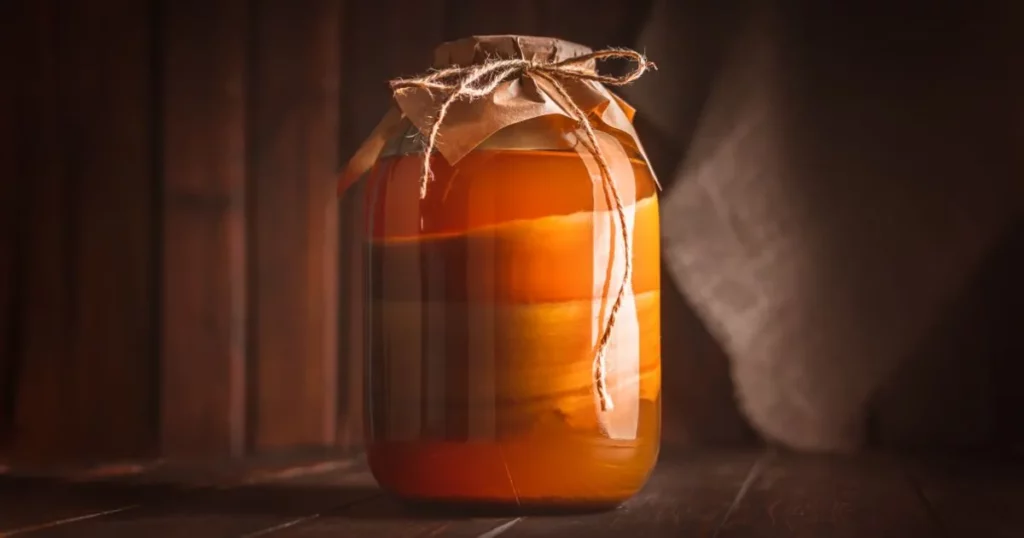
This isn’t some new fad that appeared out of nowhere. Kombucha has been doing its thing for centuries. Long before we called it a “gut-health booster,” it was part of family kitchens, medicine cabinets, and cultural rituals. And now? It’s found a shiny new life in the wellness world. So let’s uncork the bottle and pour out the full story of kombucha tea history.
What is Kombucha?
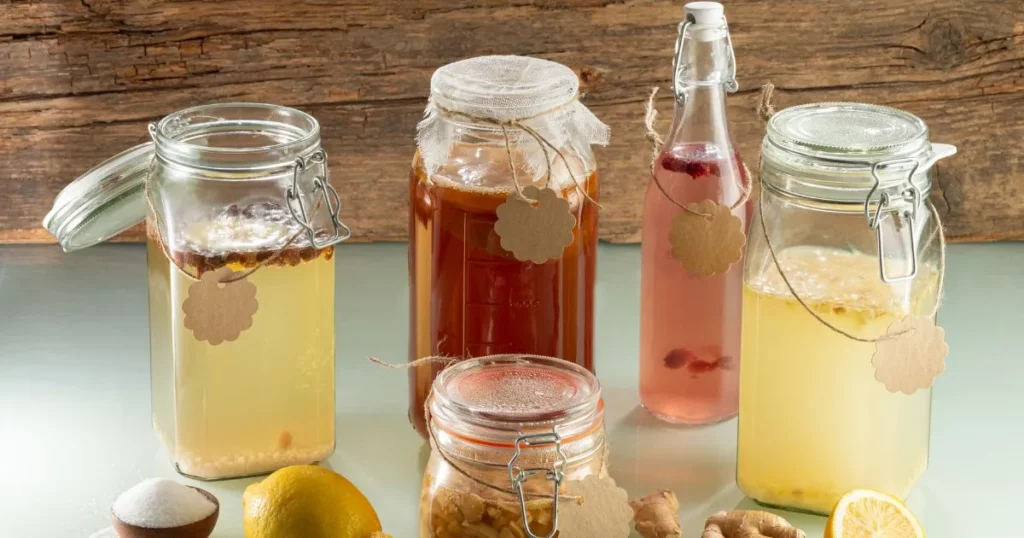
At its core, kombucha is kind of like nature’s science project: a fermented drink made from sweetened tea, usually black or green—and a symbiotic culture of bacteria and yeast. Yes, we’re talking about the infamous SCOBY, that squishy, jellyfish-looking blob that’s responsible for turning tea into something tangy, fizzy, and full of probiotics.
The process is simple and magical at the same time: tea + sugar + SCOBY = kombucha. Over time, the sugars get consumed by the yeast, and the bacteria produce acids and carbonation. The result is a tangy, slightly sour, lightly bubbly drink that tastes like a mash-up of iced tea and vinegar, in the best way.
Some people brew it at home in glass jars that live on the kitchen counter like weird pets. Others grab a cold bottle from a health store fridge with names like “Mango Zen” or “Blueberry Bliss.” However you meet kombucha, it makes an impression.
The Origins of Kombucha – Tracing Its Roots
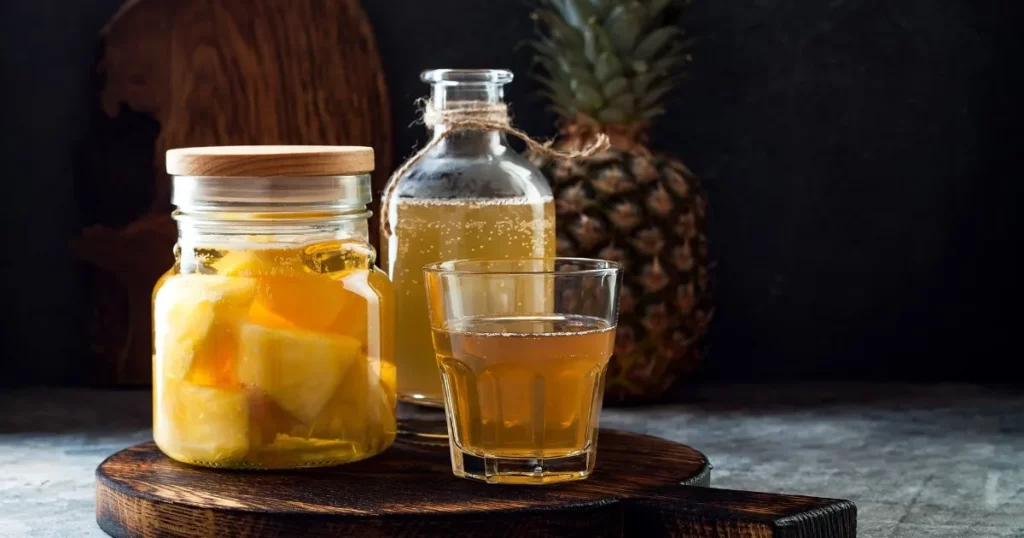
Okay, so where did this magical elixir come from? The kombucha origin is a bit hazy, and historians still have friendly debates about the exact coordinates. But most agree it started somewhere in Northeast China, around 220 B.C., during the Tsin Dynasty.
Back then, it was more than just a beverage. It was a health tonic, believed to give energy, improve digestion, and even help with immortality (because ancient wellness goals were nothing if not ambitious). From there, it traveled along trade routes to other parts of Asia and eventually to Europe and beyond.
Kombucha origin country debates are often between China and Japan, with both having long traditions of fermented teas. Either way, kombucha didn’t just randomly pop into Whole Foods in 2015. It’s been around for over two thousand years, showing up in home kitchens, herbal medicine practices, and even royal courts.
Kombucha Across the World – Regional Variations & Cultural Impact
Just like food, kombucha took on the flavor of every region it touched. Each culture made it their own, with slightly different ingredients, brewing methods, and beliefs about its benefits.
1. Kombucha in Russia
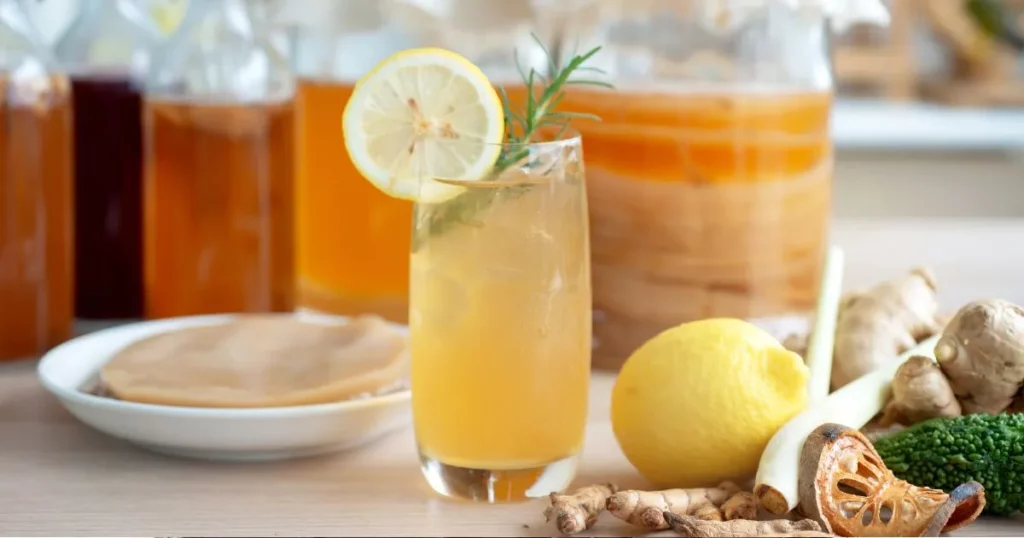
In the 19th century, Russia embraced kombucha in a big way, calling it “tea kvass.” It became a common household drink, often made in large glass jars and passed down through generations. Russians believed it helped with everything from digestion to detoxing and even warding off illness.
It was especially popular during times when fresh produce was hard to come by. Kombucha was a way to support gut health and immunity using simple, shelf-stable ingredients. Talk about a smart pantry staple.
2. Kombucha in Japan
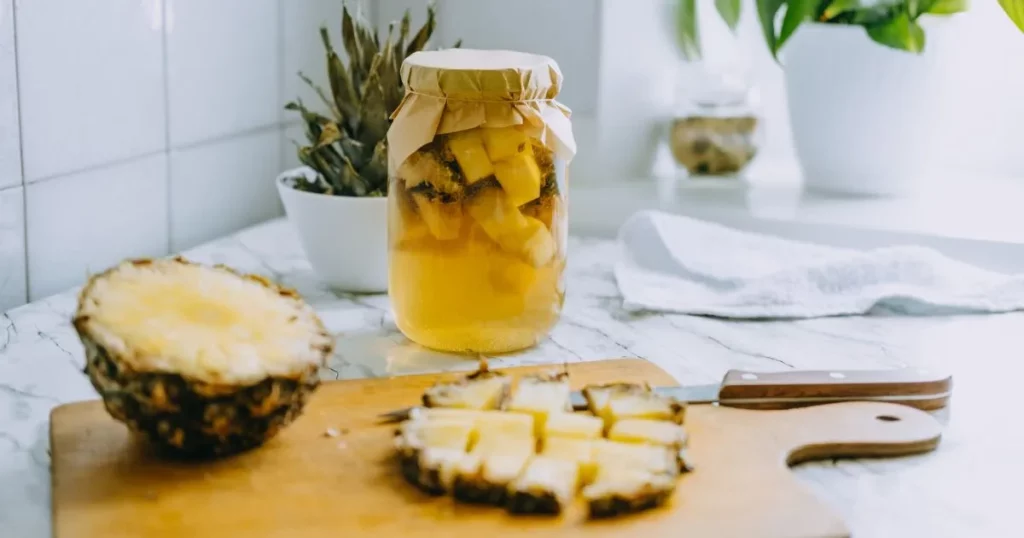
In Japan, kombucha’s story is slightly different. What many call “kombucha” there actually refers to kombu cha, a tea made from kelp (kombu), not the SCOBY-fermented version. Confusing? A little. Delicious? Absolutely.
That said, the fermented tea version also found its place in Japanese wellness culture, especially among Buddhist monks who appreciated its energizing effects without caffeine overload. It was consumed as a meditation aid, digestive aid, and all-around vitality booster.
3. Kombucha in the West
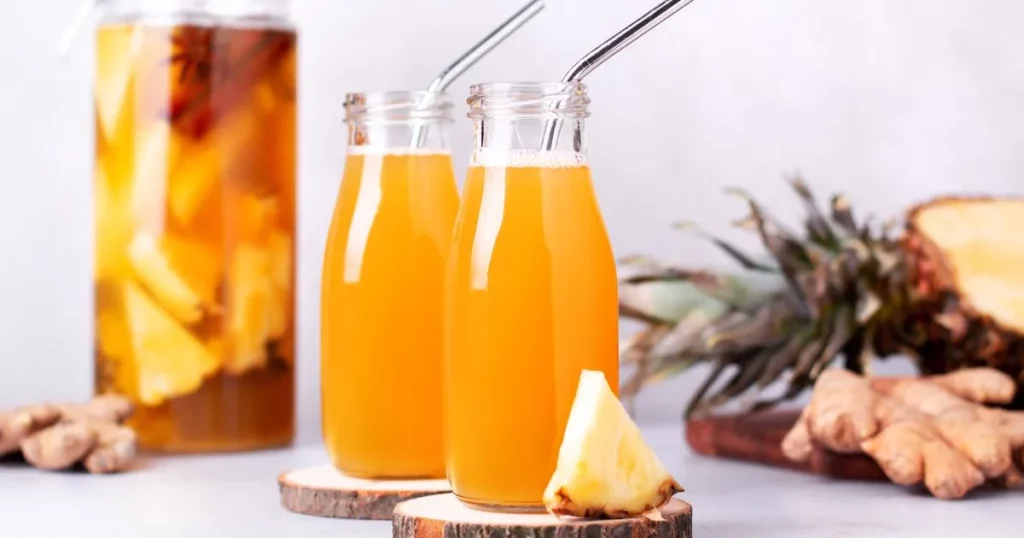
Fast-forward to the late 20th century and kombucha begins its slow but steady takeover of Western hearts and fridges. It started in small health food circles—think tie-dye, granola, and DIY fermentation kits. By the early 2000s, brands like GT’s began bottling it, and suddenly kombucha was on supermarket shelves across the US and Europe.
Today, the West has embraced kombucha in all its tangy glory. You’ll find it in hip cafés, vegan bistros, and even cocktail menus. Whether it’s small-batch artisanal or mass-produced and shelf-stable, kombucha is everywhere, and it’s got the kombucha tea history to back it up.
Kombucha in Modern Times – The Health Craze That Took Over
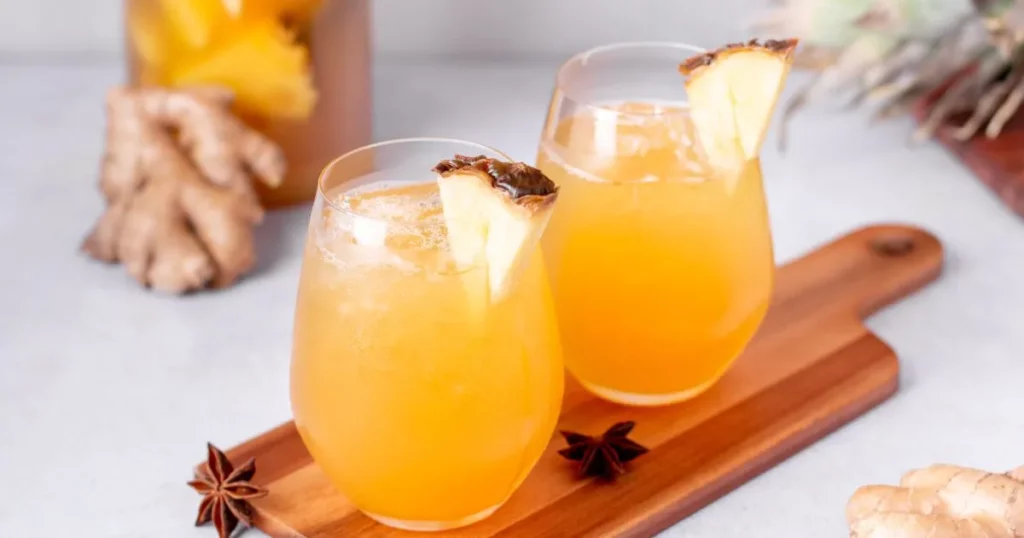
Let’s be honest: kombucha’s comeback was perfectly timed. As the wellness wave surged, clean eating, probiotics, gut health, you name it—kombucha rode right in on a fizzy wave.
Health-conscious folks started swapping out sugary sodas for bottles of this tangy tea, drawn in by promises of:
- Better digestion (thanks to all those natural probiotics),
- Detox benefits (courtesy of acids like gluconic and acetic acid),
- Immune support (hello antioxidants),
- And just an overall feel-good vibe.
Is it a miracle drink? Not exactly. But it is a tasty, low-calorie alternative to sugary beverages, with a refreshing tang and a satisfying fizz. It also pairs weirdly well with yoga and farmer’s markets.
The kombucha origin country might be centuries behind us, but today, this humble tea is a full-blown lifestyle product. It’s got fans in the fitness crowd, the natural health movement, and even the craft brewing scene.
Take a Sip of Health – Get It Delivered Fresh to Your Doorstep with Swiggy!

Craving a cold, fizzy bottle of kombucha right about now? Whether you’re into tangy ginger, tropical mango, or something floral like hibiscus rose, your perfect brew is just a few taps away.
Head to Swiggy’s food delivery and browse restaurants or stores near you that stock fresh, flavorful kombucha. Skip the brewing, forget the SCOBY babysitting, and get your probiotic fix delivered cold and fast.
Because some days, wellness looks like ordering your favorite kombucha from the couch. And we’re okay with that.
Conclusion
Kombucha isn’t just a drink. It’s a fermentation story, a travel diary, and a wellness staple wrapped into one fizzy, slightly sour glass. From ancient dynasties in China to small-town Russian kitchens and trendy Western cafes, kombucha tea history is nothing short of legendary.
Its origin may be ancient, but its appeal? Totally modern. So whether you’re drinking it for your gut, your glow, or just because it tastes cool and slightly weird in the best way, you’re part of a global tradition that spans centuries.
Now go crack open a bottle and toast to the SCOBY. It’s done more for your digestion than you probably realize.
FAQs
1. What are the health benefits of Kombucha?
Kombucha is known for being rich in probiotics, which support gut health. It may also help improve digestion, support the immune system, and provide antioxidants. Some people find it helps reduce bloating and even boosts energy levels thanks to small traces of caffeine and B vitamins.
2. Is kombucha safe for everyone to drink?
Generally, yes, but with a few caveats. Since kombucha is fermented, it contains a small amount of alcohol (usually less than 0.5%). It’s also slightly acidic. Pregnant people, those with compromised immune systems, or folks sensitive to caffeine or alcohol should consult a doctor before diving in.
3. What are some popular kombucha flavors?
There’s something for every taste bud. Popular options include ginger lemon, mango, hibiscus, green apple, lavender, and raspberry. Some blends get creative with adaptogens or herbs like tulsi and ginseng. The base flavor is tangy, so fruits and spices pair beautifully with it.
Author Bio
Satisfying your cravings, one bite at a time. Discover the best eats, trends, and uncover the hidden gems with us to make your online ordering or dining experience a memorable one.




























































































